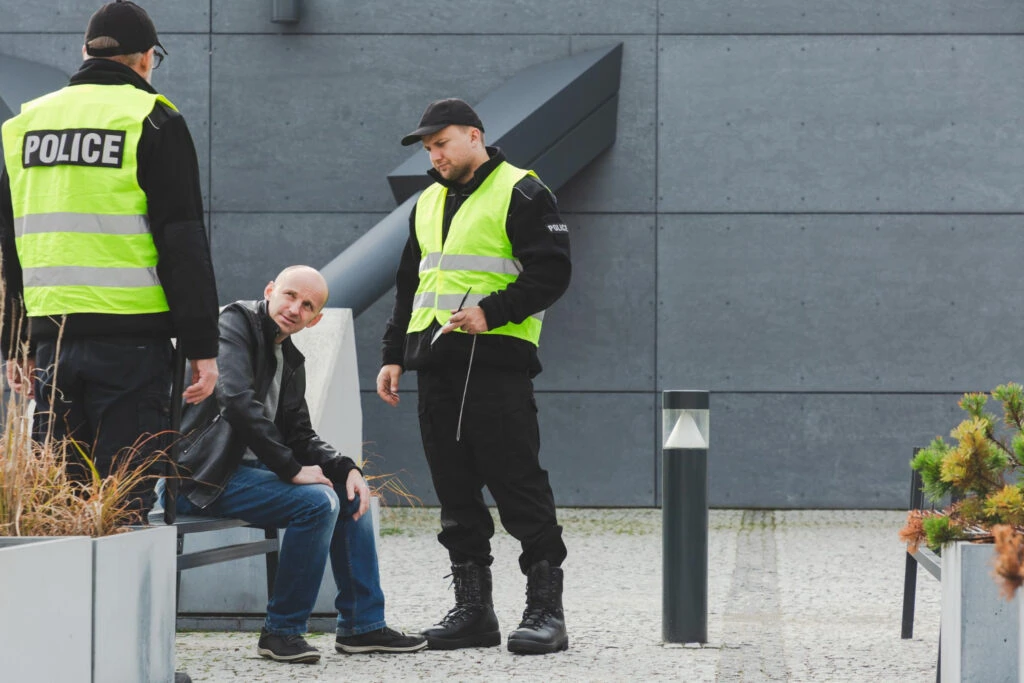When dealing with law enforcement in California, it’s important to understand the legal difference between being detained and being arrested.
In simple terms, a detention is a temporary stop where police have reasonable suspicion to investigate further, while an arrest is a formal action that involves taking someone into custody, usually based on probable cause that a crime has been committed.
Understanding the distinction in the detained vs arrested debate can help protect your rights and prepare you to respond lawfully and calmly during any encounter with police.
What Does It Mean to Be Detained vs Arrested in California?
What Is a Detention?
A detention occurs when a law enforcement officer briefly stops you to investigate suspected criminal activity. Detentions are not considered full arrests and do not require a warrant. However, they must be based on a legal standard called reasonable suspicion—meaning the officer has specific, articulable facts that suggest you may be involved in a crime.
Common examples of detention include:
- A traffic stop for a suspected moving violation.
- A police officer stopping someone who matches the description of a suspect.
- A temporary stop during a police investigation in a public area.
In California, detentions are meant to be brief—long enough to confirm or dispel the officer’s suspicions. If the detention goes beyond that, it could turn into a de facto arrest, which requires probable cause.
What Is an Arrest?
An arrest is a more serious and formal act. It occurs when you are taken into custody because law enforcement has probable cause to believe you committed a crime. Probable cause means there’s enough evidence to reasonably believe a crime occurred and that you are involved.
During an arrest:
- You may be handcuffed and transported to jail.
- You must be read your Miranda rights before any custodial interrogation.
- You will likely face criminal charges and need to appear in court.
The legal threshold here—probable cause—is higher than that of a detention, and it gives police more authority over your freedom.
Can Police Detain You Without Arresting You?
Yes, police officers in California can detain you without placing you under arrest. This is a key part of the legal discussion around detain vs arrest.
During a detention, the officer can:
- Ask you questions related to an investigation.
- Conduct a pat-down for weapons if they believe you’re armed (under Terry v. Ohio).
- Verify your identity.
However, they cannot:
- Conduct a full search without consent, a warrant, or probable cause.
- Transport you to another location unless you’re under arrest.
- Hold you for an extended period.
If the officer’s suspicions are not confirmed, they must let you go. If further investigation gives them probable cause, they may lawfully proceed with an arrest.
Probable Cause vs. Reasonable Suspicion: What’s the Difference?
The difference between probable cause and reasonable suspicion is central to understanding detained vs arrested situations.
Reasonable Suspicion
- A lower standard.
- Based on specific, objective facts.
- Justifies brief detentions or investigative stops.
- Example: A person pacing back and forth near a closed store at night may arouse reasonable suspicion of attempted burglary.
Probable Cause
- A higher standard.
- Based on facts and evidence sufficient for a reasonable person to believe a crime has been committed.
- Required for arrests and search warrants.
- Example: If police see someone breaking a window and entering a store, that could establish probable cause for arrest.
In short, reasonable suspicion allows police to stop you. Probable cause allows them to arrest you.
What Are Examples of Being Detained and Arrested?
Understanding detain vs arrest through examples can clarify how these laws play out in real life.
Detention Example
You’re driving home late at night, and an officer stops you for a broken taillight. They ask for your ID, check for outstanding warrants, and send you on your way. This is a lawful detention based on reasonable suspicion of a traffic violation.
Arrest Example
While investigating a noise complaint, police see illegal drugs in plain view and determine there is probable cause to believe you are in possession of narcotics. You are handcuffed, taken to jail, and formally charged. This is an arrest.
If you’re ever unsure whether you’re being detained or arrested, you have the right to ask:
“Am I free to leave?”
If the officer says no, you’re either being detained or arrested. Ask clearly:
“Am I under arrest?”
This question can clarify the situation—and your rights.
What Are Your Rights After Being Arrested?
After an arrest in California, you have several constitutional rights:
- Right to remain silent – You don’t have to answer police questions.
- Right to an attorney – You can ask for a lawyer before answering any questions.
- Right to know the charges – You must be informed of what crime you’re accused of.
- Right to a speedy trial – You’re entitled to timely legal proceedings.
- Protection from unlawful searches – Police must follow legal protocols to search you or your property.
Exercising your rights calmly and respectfully can protect you from self-incrimination and legal overreach.
How Can a Criminal Defense Attorney Help?
If you believe your rights were violated during a detention or arrest, or if you’re facing criminal charges, an experienced criminal defense attorney can be a critical ally. Here’s how they can help:
- Challenge the legality of the stop or arrest – If the officer lacked reasonable suspicion or probable cause, your case may be dismissed.
- Suppress unlawfully obtained evidence – Evidence found during an illegal search or without a proper warrant may be excluded in court.
- Negotiate with prosecutors – An attorney can seek reduced charges or alternative sentencing options.
- Defend you at trial – If your case goes to court, a lawyer will build a defense tailored to your circumstances.
Legal representation can mean the difference between a conviction and a clean record. The sooner you speak with a defense lawyer, the more options you may have.
Conclusion
The difference between being detained vs arrested matters—both legally and practically. A detention is a temporary investigative stop based on reasonable suspicion, while an arrest is a formal deprivation of liberty based on probable cause. Knowing the difference empowers you to assert your rights calmly and effectively during police encounters.
If you’ve been detained or arrested in California and aren’t sure what your next steps should be, speaking with a qualified criminal defense attorney can help you understand your options and protect your future.










